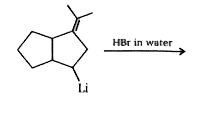[A] : Enzymes are proteins which catalyse biochemical reactions .
[R] : The enzyme itself is unchanged in the reaction , its presence allows the reaction to take place .
If both A and R are true and R is the correct explanation of A
If both A and R are true but R is not the correct explanation of A
If A is true and R is false
If both A and R are false
To analyze the statements given in the question regarding enzymes, we will evaluate each statement step by step.
Step 1: Evaluate Statement (A)
Statement (A): Enzymes are proteins which catalyze biochemical reactions.
- Enzymes are indeed biological catalysts that speed up chemical reactions in living organisms.
- They are primarily composed of proteins, although some RNA molecules can also act as enzymes (ribozymes).
- Therefore, this statement is True.
Step 2: Evaluate Statement (R)
Statement (R): The enzyme itself is unchanged in the reaction; its presence allows the reaction to take place.
- Enzymes facilitate reactions without being consumed or permanently altered in the process.
- They lower the activation energy required for reactions, allowing them to proceed more easily.
- Thus, this statement is also True.
Step 3: Determine the Relationship Between (A) and (R)
- Now we need to assess whether statement (R) is the correct explanation of statement (A).
- While both statements are true, statement (R) does not explain why enzymes catalyze reactions. The explanation lies in their ability to lower activation energy and reduce energy consumption, not merely in their unchanged state.
- Therefore, while both statements are true, (R) is not the correct explanation for (A).
Conclusion
- Both statements (A) and (R) are true, but (R) does not correctly explain (A). Hence, the correct answer is that both statements are true, but (R) is not the correct explanation of (A).
Final Answer
- Both (A) and (R) are true, but (R) is not the correct explanation of (A).
---
Statement (A): Enzymes are proteins which catalyze biochemical reactions.
- They are primarily composed of proteins, although some RNA molecules can also act as enzymes (ribozymes).
- Therefore, this statement is True.
Statement (R): The enzyme itself is unchanged in the reaction; its presence allows the reaction to take place.
- They lower the activation energy required for reactions, allowing them to proceed more easily.
- Thus, this statement is also True.
- Now we need to assess whether statement (R) is the correct explanation of statement (A).
- While both statements are true, statement (R) does not explain why enzymes catalyze reactions. The explanation lies in their ability to lower activation energy and reduce energy consumption, not merely in their unchanged state.
- Therefore, while both statements are true, (R) is not the correct explanation for (A).
- Both statements (A) and (R) are true, but (R) does not correctly explain (A). Hence, the correct answer is that both statements are true, but (R) is not the correct explanation of (A).
- Both (A) and (R) are true, but (R) is not the correct explanation of (A).
Topper's Solved these Questions
Similar Questions
Knowledge Check
In Which of the following reaction an acid-base reaction takes place ?
A B
B C
C DAll of these
DAll of these
Enzymes catalyse the biochemical reactions by ____ the activation energy.
View SolutionBy the action of enzymes, the rate of biochemical reaction
View SolutionRole of enzyme in reaction
View SolutionHow do enzymes catalyse a chemical reaction in the living system ?
View SolutionWhich enzyme catalyzes the link reaction ?
View SolutionName the part of a cell in which many chemical reactions occur with the help of enzymes.
View SolutionEnzymes catalyse reactions by
View Solution
